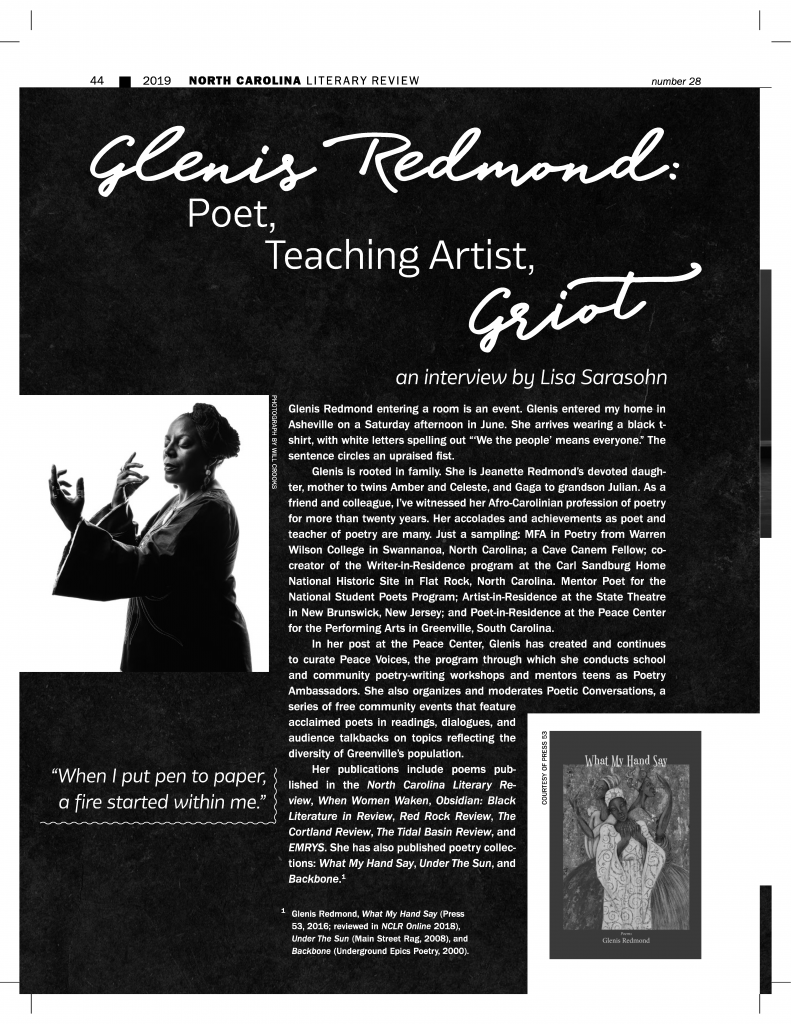Friday from the Archives: “Glenis Redmond: Poet, Teaching Artist, Griot” written by Lisa Sarasohn from NCLR Issue 28 (2019)
We are thrilled to have award-winning poet and teaching artist Glenis Redmond as the judge for our first annual Green Performance Poetry competition this month, cosponsored with the NC Poetry Society. Spoken Word artists, check out all the details for submitting a video. We are looking forward to hearing new work.
Redmond has worn many poetic and artistic hats throughout her career, as illuminated in Sarasohn’s 2019 interview. From performance to dance to social justice activism, Redmond’s work honors herself and her ancestors. She says, “Poetry and social justice are personal. I had to save myself first. Then, when I had something to give, I could give it away. Poetry became that vehicle.”
Her teaching work has taken her across North and South Carolina, as well as throughout the country as a Kennedy Center Teaching Artist. She finds students are using poetry the same way she has been able to. Redmond explains, “I’m learning to love myself, learning to love others, learning to create a space of love. At the end of the day, that’s what I’m giving away. Poetry is mirrors. Poetry allows me to reflect; it allows me to give other people mirrors to look at as well.”
Performance poetry was part and parcel of Redmond’s artistic career, especially once she discovered a cultural heritage of praise poetry. Her work now as Poet Laureate of Greenville, SC is continuing to build audiences. She reminisced about her beginnings in Asheville: “I read the Poet’s Market and it said, “Poet, don’t be content with writing a book. Go out and create your audience.” And that’s what I did. Nonstop. I was going out and creating an audience. I appreciated the call-and-response aspect of poetry, creating spaces with live poetry, having a conversation with the audience.”
Read the whole interview in the 2019 issue, “NC African American Literature,” available on ProQuest. The issue is still available to order for your collection.
